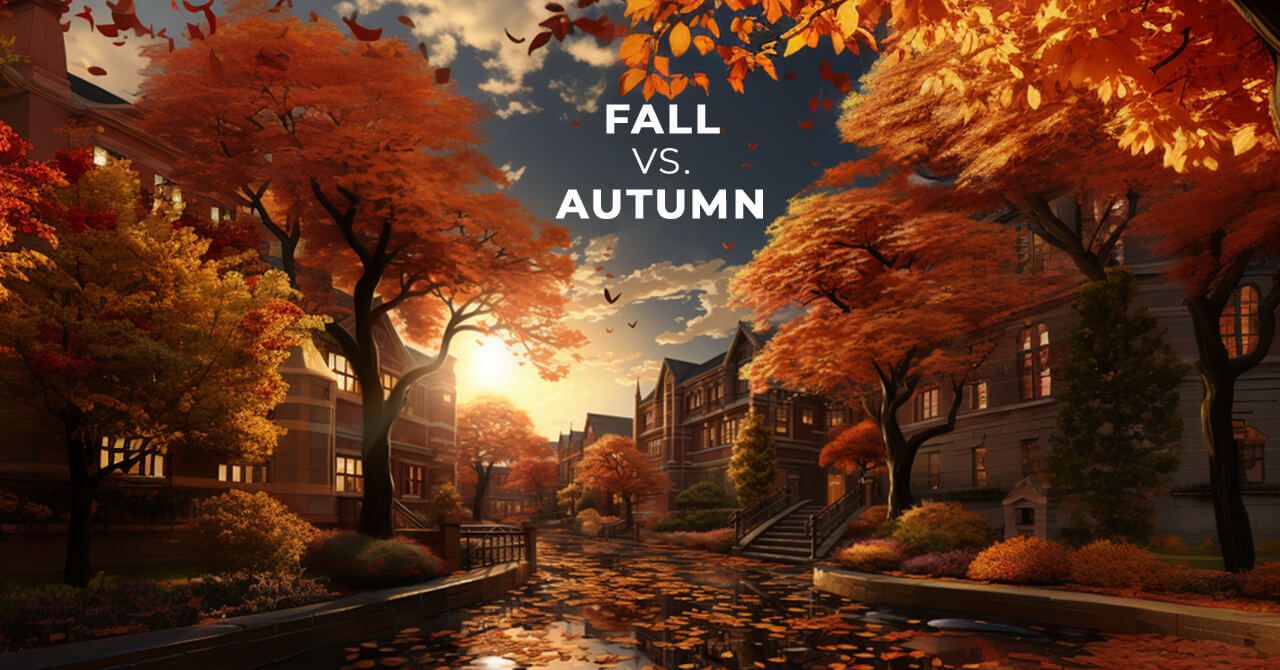
Is Fall And Autumn The Same?
Autumn and fall are two dissimilar nouns used to portray the period/season that begins after the summer and ends right before winter.
The concept of seasons is a widespread ideology describing the change from one year to another. In some countries, two or three seasons are recognized, while the most common thing is to have three to four named seasons in the year—spring, summer, autumn/fall, and winter. This raises many questions about the naming of times, especially in a fall vs. autumn argument.
The debate surrounding fall vs. autumn has folks wondering why autumn is called fall. This argument has been long-standing, and to address it, we would take a walk down memory lane to the creation of seasons’ words and their original meaning.
What is the major difference between fall and autumn?
Autumn and fall are two dissimilar nouns used to portray the period/season that begins after the summer and ends right before winter. However, some confusion lies about which word is correct and should be generally used, even with both being popular. So, “What is the difference between fall and autumn?” It’s fascinating how “fall” and “autumn” can be used interchangeably to discuss the same season.
The debate of fall and autumn’s naming revolves around the grammatical differences between the United Kingdom and American grammar. In UK grammar, “autumn” is favored, while Americans prefer “fall.” However, “autumn” is often seen as the more formal term and is commonly used for official purposes. If you learn English online, you will encounter a lot of examples of such differences between American and British English versions.
The origin of the word “fall” for the season name
The creation and meaning of “fall” as a name for the seasons go way back to the 1500s when it was used by poets who were dazzled by the changing seasons to express the period when the leaves fell off evergreen plants before the coming of winter in their poems. “The falling of leaves” became widespread in literature as early as the 1500s, and soon, the people shortened it to “fall.”
The origin of the word “autumn” for the season name
Interestingly, autumn originates in Latin and is derived from the word “autumnus.” It later transformed to “autompne,” in French, and its etymological roots remain a mystery to scholars. Autumn found its way into English grammar, and it was also to talk about the time of year before winter when the trees shed. It was recorded to be in use as early as the 1300s by masters of English Literature like Chaucer in his poems.
Fall vs. Autumn: British vs. American English
But surprisingly, the words “fall” and “autumn” were first spoken in British grammar. The British initially used autumn, which eventually became American grammar through their close trade relations. However, as the years passed, “autumn” fell into disuse in Britain and was replaced by “fall of the leaves,” and the British seemed to be very content with this. But it didn’t last long, and they reverted to using autumn.
However, the United States, already accustomed to naming the season “fall,” didn’t follow the footsteps of British Grammar as it began to change. Hence, the Americans stuck to the season “fall.” Both are correct and can be interchanged, and they are used in some British texts.
Autumn or fall: The right name to use
Indeed, no definitive term said to be wrong or correct between “autumn” and “fall” is used and commonly spoken in English. Paying attention to the common usage in your surroundings can be helpful. We can avoid any potential confusion by using different terms to refer to the same season. In British English and countries influenced by it, “autumn” is commonly used, while “fall” is the preferred term in America. This way, we can ensure clarity and understanding when discussing this beautiful time of year.
Linguistics analysis of fall and autumn
When we speak of “autumn,” it evokes a beautiful and poetic image, symbolizing abundant harvest and the impending arrival of winter. When it comes to “fall,” it takes a more straightforward approach, highlighting the cycle’s end as the trees lose their leaves and prepare for a new season. There’s not much poetic imagery linked to it.
However, using any of both terms is in personal preference and regional dialects. A good scenario is using Autumn instead of fall, whether written or spoken in America; there will be no issue. In Britain, using the term “fall” instead of “autumn” may be perceived as unusual since the British are more accustomed to using “autumn.”
Hello! I am Moses, an expert content writer, editor, and copywriter. I have a Master's degree in journalism, media studies, and communication. I enjoy creating content.

